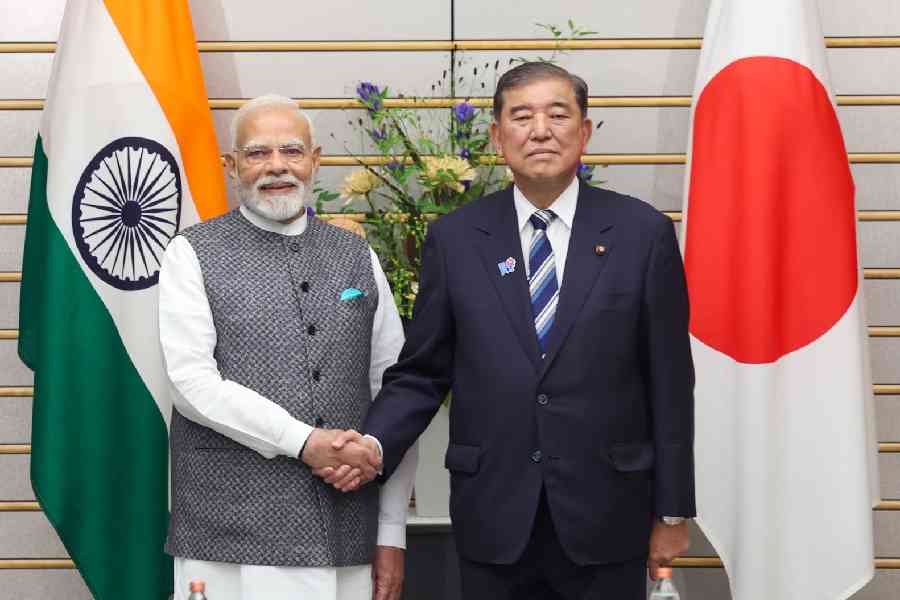India and Japan on Saturday signed the implementing arrangement for the Chandrayaan-5 mission, a joint exploration of the polar region of the moon by the space agencies of the two countries.
The Implementing Arrangement between the Indian Space Research Organisation (ISRO) and Japan Aerospace Exploration Agency (JAXA) concerning Joint Lunar Polar Exploration Mission was inked on the sidelines of Prime Minister Narendra Modi’s visit here.
The Chandrayaan-5 mission aims to study the lunar volatile materials, including lunar water, in the vicinity of a Permanently Shadowed Region (PSR) in the lunar South pole. The mission will be launched by JAXA onboard its H3-24L launch vehicle, carrying the ISRO-made lunar lander, which will carry the Japan-made lunar rover.
ISRO, apart from developing the lunar lander, is also responsible for developing a few scientific instruments for the mission for exploration and in-situ analysis of the volatiles reserved in the lunar polar region.
“I am glad that India and Japan are joining hands for the next edition of the Chandrayaan series or the LUPEX (Lunar Polar Exploration) mission. This will contribute to deepening our understanding of the permanently shadowed regions at the lunar south pole,” Modi said in an interview with The Yomiuri Shimbun.
“Our G2G collaboration in the space sector, between ISRO and JAXA, is fostering a culture of cooperation between our industries and startups. This is creating an ecosystem where innovation flows both ways — from labs to launch pads, and from research to real-world applications,” Modi said.
The Prime Minister said he was confident that the scientific teams of India and Japan will be working together to push the boundaries of space science.
“And, our partnership in space will not only expand horizons above us, but also improve lives around us,” Modi said.
He said India’s space journey is a story of determination, hard work and innovation of the country’s scientists.
“From Chandrayaan-3’s historic landing on the moon’s south pole to our advances in interplanetary missions, India has consistently demonstrated that space is not the final frontier, it is the next frontier,” Modi said.
The Prime Minister said the impact of space science is linked to progress in our daily lives, from agriculture, disaster management, to communications and beyond.
Except for the headline, this story has not been edited by The Telegraph Online staff and has been published from a syndicated feed.










